Pioneering projects
Here, the Equity Unit will introduce projects with a pioneering approach to gender justice, the reconciliation of work and family obligations, and diversity. We will include events, workshops, seminars, and research projects. The projects are headed by students, researchers, and administrative and technological staff. The Equity Unit supports all projects through the Equal Opportunity Fund or the Women’s Advancement Fund.
Is virtual teamwork a chance or barrier for students with impairments?
Dr. Stephan Schmucker is conducting the teaching and research project Virtuelle Teamarbeit—Chance oder Barriere für Studierende mit Beeinträchtigungen? (Is virtual teamwork a chance or barrier for students with impairments?) at the Department of Socioeconomics. Among other things, he and his research team are exploring to what extent team performance is affected in the long run when students work in digital teams.
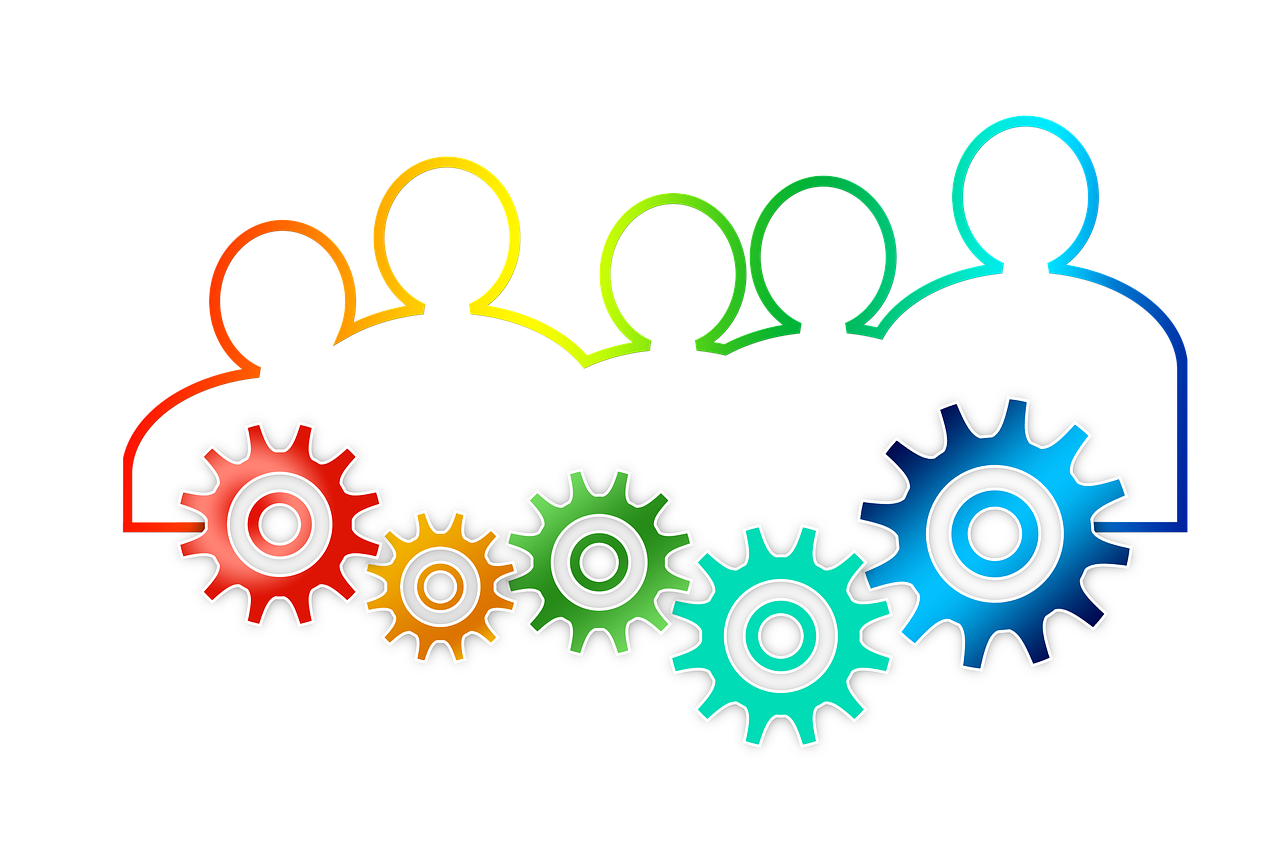
They are specifically investigating to what extent virtual student teams build memory systems and how these affect group collaboration. The teaching and research project at Universität Hamburg’s Department of Socioeconomics aims to reflect academically how significant digital collaboration has become in the context of the COVID-19 pandemic. Below, Stephan Schmucker describes his research.
Can you give us a brief introduction to your teaching and research project on virtual teamwork?
The project responds to the current debate on the quality of digital education under the conditions of the coronavirus pandemic. We particularly focus on the virtual teamwork of students, as the development of team skills forms an integral part of most curricula. From a learning-oriented perspective, teamwork can help reduce mistakes and consolidate fragmented thinking and acting. Unlike individuals, teams depend on seamless coordination processes supported by transactive memory systems in order to be effective. Transactive memory systems build on the mutual “I know that you know” awareness within a team. Growing aware of their teammates’ specific knowledge, the team members can develop a distributed memory system, which the whole team can tap into and improve team performance. However, this positive impression must be qualified, as most research refers to face-to-face teams. Some studies, by contrast, suggest that personal interaction is essential to building a transactive memory system and that computer-based communication poses a substantial barrier.
What made you consider the possible chances and barriers of virtual teamwork for students with impairments?
The coronavirus pandemic has also further accelerated digital change (inevitably). The predominance of asynchronous communication (e.g., emails) in virtual teams has had its day. New digital tools facilitate virtual collaboration. Videoconferencing solutions, for example, have become user-friendly and inexpensive. They enable synchronous communication among team members and the interpretation of gestures and facial expressions of Internet users. Video calls have become the rule rather than the exception and are often being used in informal communication as well. This should make building shared experiences within a team easier and reveal elements of team members’ tacit knowledge, thus enabling virtual teams to develop transactive memory systems.
What is the aim of your research project?
We want to investigate whether virtual student teams are able to build and sustain transactive memory systems and, if yes, how this affects team performance. In this context, we also want to examine to what degree the development of a transactive memory system is influenced by students’ sociodemographic background.
How is this topic relevant to the University, research, and society?
If virtual and face-to-face teamwork turn out to be similarly valuable, virtual teamwork would also enrich university teaching after the pandemic, thus providing new chances for students with certain physical impairments. For instance, time-consuming travel to and from upcoming team meetings would no longer be necessary. Students could operate from their home environment without worrying about the negative impacts on team performance.
The Equity Unit’s questions were answered by Dr. Stephan Schmucker. Dr. Stephan Schmucker has previously discussed his work in the Equity Unit’s Gleichheitszeichen podcast (German only).
The teaching and research project Virtuelle Teamarbeit—Chance oder Barriere für Studierende mit Beeinträchtigungen? was funded by the Universität Hamburg Equal Opportunity Fund.
Implementing New Work measures in a gender-equitable, diversity-appropriate, and family-friendly way
Initial research on implementing New Work for technical, administrative, and library staff from an equal opportunity perspective

A project focusing on how to best implement New Work in a gender-equitable, diversity-appropriate, and family-friendly way at Universität Hamburg was conducted in the area of technical, administrative, and library staff from 1 July to 1 December 2022. Project heads were Dr. Nina Feltz and Dr. Stephan Michel. In the below interview Dr. Nina Feltz introduced the project.
How is the project relevant to the University?
Social changes such as increasing digitalization and demographic change make the University as an employer assess how to provide a sustainable and attractive work environment. The participation of special interest representatives ensures that the University’s main New Work project focuses strongly on gender equality, diversity, and work-life balance. As a small project, we want to incorporate our results into the main project; after all, it is one of our original tasks to provide advice for the departments.
What is the focus of the project?
Against the backdrop of the New Work project and its pilot projects at Universität Hamburg, we aim to examine how other universities conduct comparable change processes, also those that run under a different name. We are examining the interrelationship of measures as to their gender equality, diversity, family-friendliness, and possible cultural change, as because we now presume that there is an interrelationship—we have been traveling the roads of New Work for a long time already on our equal opportunity measures, we just did not call them New Work yet.
The first research round has been completed and we have selected 4 universities that also explore measures as to gender equality, reconciling work and family obligations, and diversity. In the future, we plan to address their equal opportunity representatives in order to generate experiential knowledge—how does New Work affect employees? How are such measures interrelated within the overall organizational change process?
Why are gender equality, family-friendliness, and diversity so important to technical, administrative, and library staff?
The focus on these issues has effected enormous changes over the past years, especially during the pandemic, which is a good thing: ensuring gender-equality as an organization lies at the core of our work. How can we improve our structure, e.g., by establishing leadership roles for employees who are dealing with work-life balance issues? How can we, for example, make jobs more attractive so that people can actually live off them and do not depend on them as a supplementary income model? Work-life balance options are essential for employee motivation in these contexts. Being able to choose how I work and where still feels new and calls for individual testing to verify how it contributes to my workplace efficiency. Accepting or rather appreciating and boosting diversity requires a deeper understanding of what we mean by it so we can foster it. In our view, gender equality, family-friendliness, and diversity are key to shaping participation at the various levels of professional activities within New Work, e.g., how to create effective dialog, etc. What are the pillars of New Work in my organization and what are suitable measures?
The project is funded by the Equal Opportunity Unit’s Women’s Advancement Fund.
In 2022, Dr. Stephan Michel and Dr. Nina Feltz were equal opportunity representatives for technical, administrative, and library staff (TVBP). Find more information on the website of the equal opportunity representative for TVBP.
AStA (Student Council) Workshop and Lecture Series: Feminism in Everyday Life
For the workshop and lecture series in 2019, different speakers looked at and discussed everyday situations from a feminist perspective. The main purpose was to get participants talking.
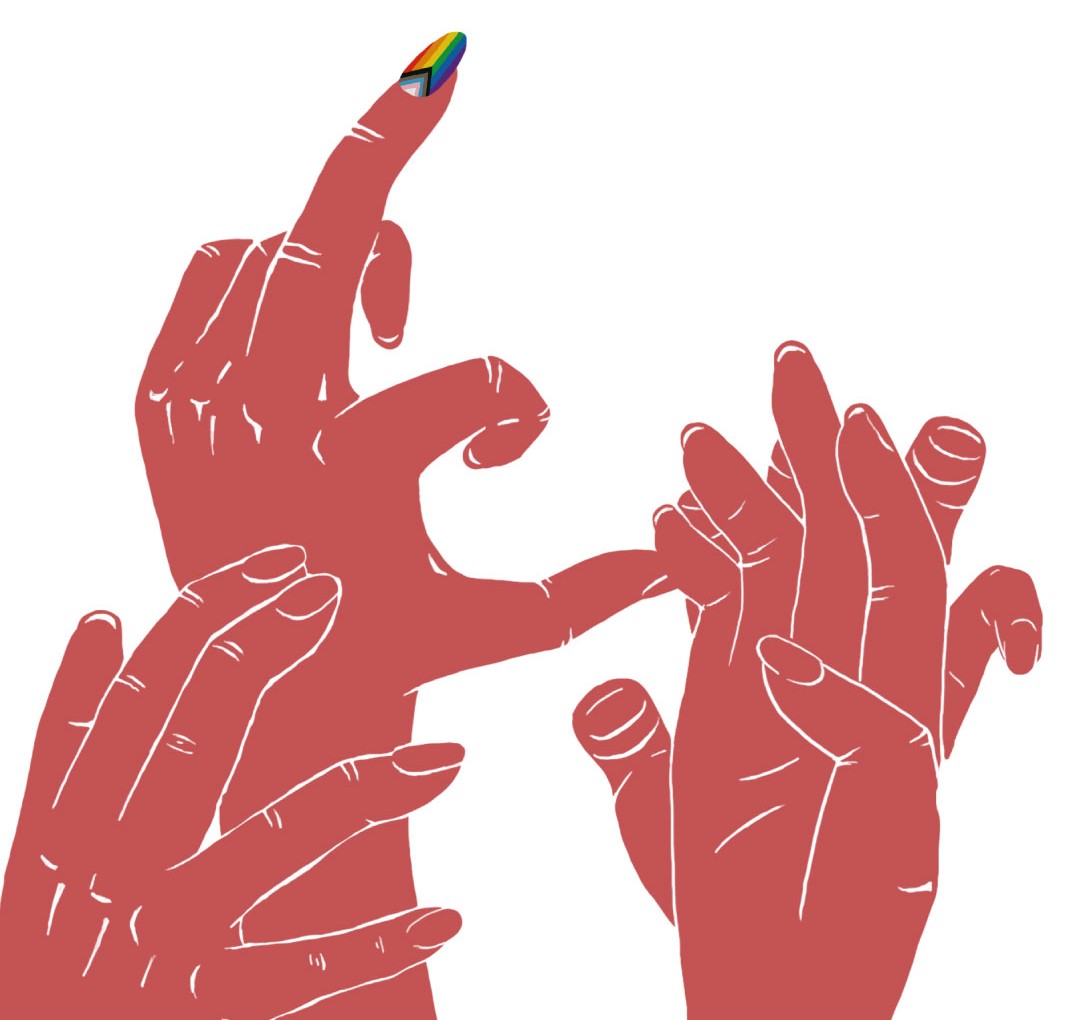
Patriarchal structures are firmly established in our society. A first step towards changing these structures and surmounting patriarchal ways of thinking and acting is to even recognize them. But how can we do this? Is feminism the only key?
For feminism to be a key, we need to understand that the term itself means more than political and societal equality.
Breaking down patriarchal structures needs to happen at societal, institutional, and political levels. However, individuals are also responsible for critically questioning their own actions and refusing to reproduce discriminating patterns.
The former equal opportunity representative of the University of Hamburg ’s student council, Leonie Ruhland, initiated the 2019 series and continued to oversee it in 2020 and 2022. She emphasized the importance of addressing everyday situations from a feminist perspective and to thereby promote gender-fair debate. The idea is to show that feminism is much more than a theoretical approach and easily applied in practice.
“Men, patriarchal perspectives, and gender-discriminatory relationships still shape our society. The university in particular as a place of knowledge creation, and its students, as upcoming scientists and scholars in our society, should critically reflect upon these topics. In my opinion, this happens far too rarely, especially at University of Hamburg . For many, it is also difficult to find a way into the very complex and extensive topic. Or to even be interested in the topic, because, of course, it involves ‘women’s issues’ or it is not deemed relevant to ‘educated women.’ It is exactly this group that the series was designed for, but naturally also for anyone else who is interested,” says Leonie Ruhland. See the AStA website (German only) for more information about the series.
There were 16 events on the following topics:
- Mit Dildos gegen das Patriarchat. Feminismus zwischen Ausverkauf und Selbstermächtigung—Zarah (Fuck Yeah Sexshop Kollektiv)
We asked how feminist ideas of bodies, desire, gender, and sex go together with a sex shop and what opportunities this kind of place could offer. - Sexismus und Antifeminismus in Politik und Medien—femrep e.V.
In this workshop, we analyzed current campaigns on the image of FLIT*s (spaces for women, lesbians, inter- and transsexual people), discussed problematic images, talked about the the relevance of intersectional feminism, and illuminated the role of the media in the fight against discrimination. - Das Persönliche ist politisch—WomeN IN Action (NINA)
NINA is a feminist group of refugee women, women with migration backgrounds, and friends in Hamburg who organize themselves. In this talk, they introduce themselves and their work. - F*Gendernorms und Elternschaftskonstruktion—Sven-Jan Schmitz
Sven looks at family constructs and norms in our society. He investigates binary gender construction and its effects on the relationship between children and parents. - Antisexistische Arbeit im Nachtleben—Alia & Leo (Safe Night e. V.)
The problems linked to nightlife are not new: sexualized assaults are, unfortunately, part and parcel of the experience—not only but mostly for women. How do we deal with this? How can we protect people and what possibilities do we have for creating safe nights for everyone? - Ask A Sex Worker—Undine de Revière
Sex worker and activist Undine de Revière on political and personal matters, her work, human rights, and feminism. - Männer und Feminismus—Philippe Greif
Based on the assumption that men in patriarchal circumstances cannot be affected by sexism, this talk asks why feminism is also important for men. - Die Klitoris—Die große Unbekannte—Daniela Schubert
In this talk, there will be time and opportunity for questions about the clitoris, (sexual) education and diversity, the imparting of knowledge, and gender justice. - Wenn wir streiken steht die Welt still—Selina Arthur
For this talk, we systematized thoughts on feminist practice related to 8 March in Hamburg and looked in-depth at activism and feminist and left-wing practices and organization. - Feminismus in Kinderschuhen—Lisa Hartmann & Leo Ruhland
For this talk, the speakers and participants took a journey through their childhoods and tugged at the roots of clichéd roles. - No pride for some of us—without liberation for all of us—Editha Masberg & Eliza-Mimouna Sarr
The largely white women’s movement of the first and second waves stand in stark contrast to the intersectional activists who have continually had to fight for their voices to be heard using various forms of opposition. This talk focuses on their perspectives and why feminism without anti-racism and the consideration of multiple types of marginalization cannot work. - Workshop über Queer_Feminismen—Queer_topia
What does Queer Feminism mean? How do queer feminists differ from other feminists? What are queer feminists’ current goals? How can we work together, strengthen one another, join together? - Vom Verhältnis queerer und rassismuserfahrener Perspektiven—Djalila Boukhari
In this workshop, we look at the junction between racism and hostility towards queerness and highlight the associated societal challenges. - Deeptalk about Sex—Rosa (Fuck Yeah Sexshop Kollektiv)
What does (our) language have to do with (our) sex? And what role does gender play? How do our intimate sex lives go together with our social relationships? This workshop looks at these and many other questions. - Allyship: A Transformative Justice Perspective—Shofie Bahaiwan
In this workshop, we explored the possibilities of allyship from the perspective of transformative justice. What is transformative justice? What does it have to do with care and our relationships? And what would allyship look like if we take power dynamics as a matter of care? - Geschlechtliche und sexuelle Vielfalt in der pädagogischen Arbeit—Queerschool
In addition to looking at terms of gender diversity and the realities of LSBTIQA+ youth, we developed possible courses of action for our own teaching practices.
For questions and cooperation queries, contact feministischebildung"AT"riseup.net.
The series was funded by the Women’s Advancement Fund at Universität Hamburg.
Diversity instead of Racism and Discrimination
Alexander Kananis taught the course 'Diversity instead of Racism and Discrimination' as part of the Studium Generale to provide students with guidance on diversity issues.
 Image: Pixabay
Image: Pixabay
The Universität Hamburg’s Studies and Careers Center (AStuB) initiated 'Diversity instead of Racism and Discrimination' headed by Alexander Kananis in Winter Semester 2021/22. The seminar aimed to familiarize students with the numerous facets and manifestations of diversity and to teach them how to consciously promote their personal attitudes and behavior. Alexander Kananis describes his course as follows:
Can you give us a short introduction to your seminar?
Our practical approach established sensitive, appreciative, and respectful ways and options for dealing with social diversity and differences—with the people in our society and the world in general—based on equal opportunities, equality, and equal treatment as fundamental principles. Accordingly, we used 5 topic formats to work out social diversity, intercultural communication, ways of dealing with conflict, racism, and discrimination in everyday life, the media, and institutions, as well as proper courses of action.
How did the seminar come to be?
My willingness to offer a seminar on dealing with social diversity and differences is based on the AStuB’s key-qualification offers and associated certificates such as teaching practice, peacebuilding, intercultural skills, intersectionality, and diversity. I have been in contact with the AStuB for some time through teaching assignments on intercultural communication and conflict management.
What are the course’s goals?
I want to inform interested participants about the/my/a (multilayered) understanding of social diversity; to broaden their knowledge about the topic, its numerous individual aspects, and its different theoretical “models”; to foster skills and provide suggestions for further/continuing/repeated independent work on the issue; and to support the development of individual abilities— and much more, of course.
Why is diversity so important to you?
I find it important to help shape societies and communities in a constructive, sustainable, and meaningful way with appreciation, respect, interest, sensitivity, empathy, and a willingness to take personal responsibility as key features. Another aim is to make nonaffected people aware of the terrible effects of (often persistent and repeated) discrimination and to prevent cases of discrimination by reducing the risk of discriminatory behavior. It is important to me that those affected are heard and given the space to report on their experiences, to see how others get involved, and to have hope that society can change for the better.
How is the seminar 'Diversity instead of Racism and Discrimination' relevant to the University, research, and society?
Dealing with diversity among students is an immense and complex task—the University has to understand, attend to, analyze the various causes and strata thereof, focus on these and the people involved, devise, and promote solutions. Research must also further investigate the individual, group-specific, societal, and economic effects of the various forms of discrimination, in particular structural and institutional. Above all, society should learn how discrimination affects people as individuals and society in general (identify the repercussions), establish helpful input without moral statements on what each of us can do differently to both prevent discriminatory behavior (reactive), and promote equal treatment based on interest, appreciation, and sensitivity (active attitude and taking action).
The Equal Opportunity Unit’s questions were answered by Alexander Kananis.
The course Diversity instead of Racism and Discrimination was funded by the Equal Opportunity Fund of Universität Hamburg. Find more information on the Studies and Careers Center website.
Dr. Mithu Sanyal and the Zentrum Gender & Diversity
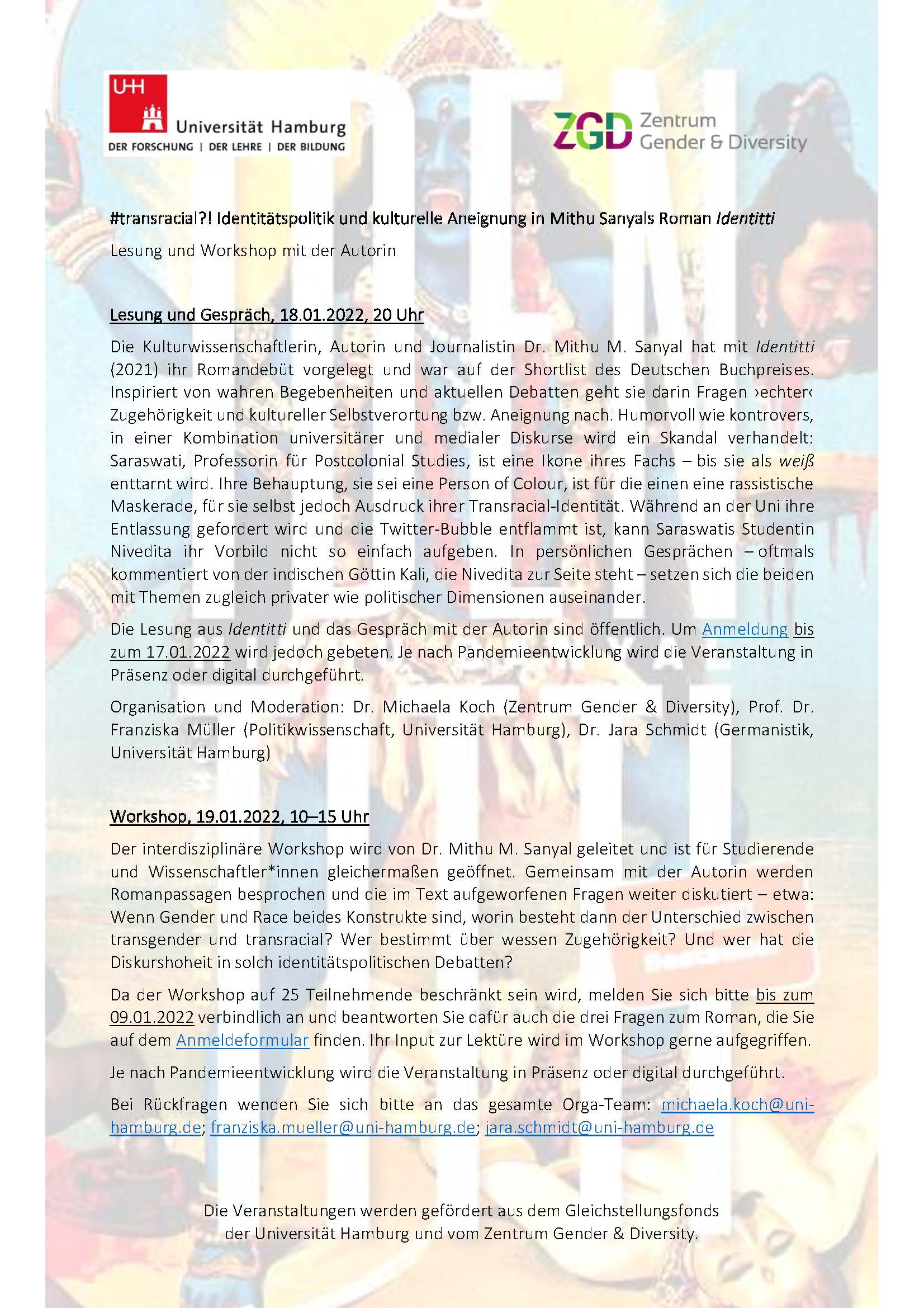
In the past, the Zentrum Gender & Diversity (ZGD) and the Equal Opportunity Unit have repeatedly worked together closely. Recently, the head of the ZGD, Dr. Michaela Koch, was interviewed for an episode of the podcast Gleichheitszeichen produced by the Equal Opportunity Unit. She also introduced her work. At the beginning of this year, a ZGD team organized a reading and a workshop with the author Dr. Mithu Sanyal, who enjoyed funding from the unit’s Equal Opportunity Fund. Under the title Race, Gender, and Identity, Dr. Mithu Sanyal read excerpts from her novel Identitti, which takes a critical look at identity (de)construction in an academic context as well as race, class, and gender. At the end, a workshop explored these topics in greater depth. In the interview, Dr. Michaela Koch talked about the role such events play for the ZGD, the importance of cooperation, and knowledge-exchange activities within and around the University.
Identitti by the cultural studies scholar and author Dr. Mithu Sanyal garnered a lot of attention last year. The novel was published in 2021 against the backdrop of a public debate on identity politics that was heated at times. Dr. Mithu Sanyal’s novel reflected many aspects of this debate. Both ZGD events were well attended, attesting to the great interest in these topics. How important are such events for the ZGD’s profile?
The public interest in the reading was indeed great and we received terrific feedback on the reading and the workshop. The digital format also enabled people from elsewhere to take part, so we had participants from different parts of Germany, Austria, Poland, the United States, and India. The various positions enormously enriched the discussion and highlighted aspects of the novel that draw less attention in the German-language discourse, for example, the Polish origins of Nivedita’s mother. The term “identity politics” that the German Right has vilified in German-language discourse and that is misused for polemical purposes has more positive connotations, for example, in the English-language discourse. As a cross-university institution for gender and diversity, we would like to take part in this discourse and create the space for critical and constructive exchange.
You organized and ran the events in cooperation with Prof. Dr. Franziska Müller (Faculty of Business, Economics and Social Sciences at Universität Hamburg, Kassel research group on postcolonialism) and Dr. Jara Schmidt (Faculty of Humanities at Universität Hamburg, Netzwerk Widerständige Praxen). Why is interdisciplinary cooperation so important, especially when it involves race, gender, and identity?
Gender and diversity studies are interdisciplinary by nature; for example, identity or aspects of identity such as race and gender are relevant in the most various of fields. They cannot be described sufficiently using the theories or approaches of a single subject area. I also believe that there is, in fact, no single discipline and hardly any research subject that can do without theories and concepts from the field of gender and diversity. For example, the political scientist Franziska Müller focuses on climate policy in her research and teaching and automatically addresses categories of difference. And Jara Schmidt works in literary studies and, naturally, with the theories, methods, and concepts central to gender and queer studies. Despite specific disciplinary features and areas of focus, we are all connected by theoretical principles that apply to the most varied research questions and that can be adapted to different settings. Thus, we have the idea basis for interdisciplinary cooperation. The ZGD is an especially good place for interdisciplinary and cross-university cooperation.
The reading was open to the public. The workshop was interdisciplinary but open only to members of the university community. Thus, the events reached different target groups. The goal was to use the novel as an introduction for people less familiar with the topic. Why is knowledge exchange both outside and within the University so important? And perhaps especially with such a topic?
This event benefited enormously from the novel’s popularity and was able—as I see it—to attract people who are not (any longer) active within the university environment and foster, at least temporarily, genuine exchange. We need to talk to each other a lot more rather than past each other. Racism is a big problem. Sexism is a big problem. They are not seldom interrelated. And there are many other problems that we need to discuss and fight in order to achieve a more just world. A novel that is as witty and intelligent as Identitti is a great way to get people talking. This is because it moves people and inspires them to reflect and discuss without requiring them to read 30 pages of theory beforehand. With a view toward scientific communication and exchange between academia and the public, there is still, in my opinion, a lot of potential for formats that draw on fiction and art, and I look forward to further initiatives and cooperation in this area.
The project was funded from the Equal Opportunity Unit’s Equal Opportunity Fund. Find more information on the Zentrum Gender & Diversity.
Refugee Law Clinic
The University of Hamburg's student volunteers provide legal advice to refugees.
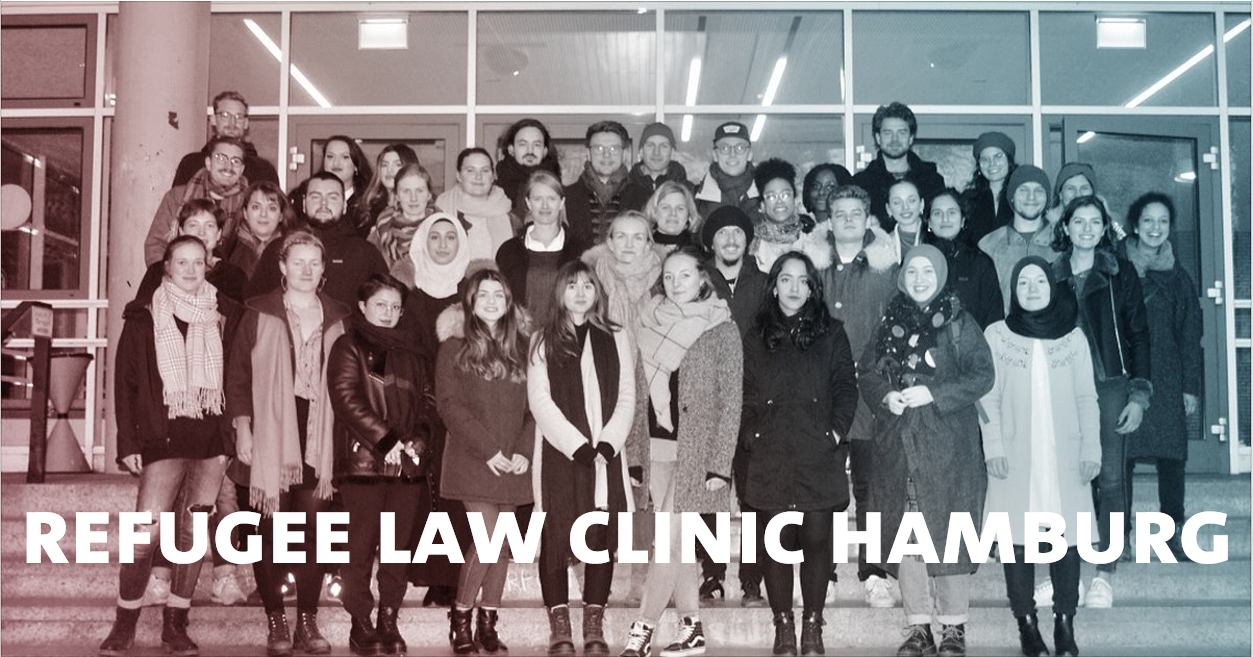
The Refugee Law Clinic (RLC) is a student initiative founded in 2014. It is run from the Faculty of Law at University of Hamburg . The project aims to provide easily accessible information and advice for people with refugee backgrounds. This is not intended for representation in court, but to provide targeted information about the German legal system. The Refugee Law Clinic introduces itself in the interview below:
Can you briefly outline the work of the Refugee Law Clinic?
Every fall, about 20–30 students begin a one-year training process to be able to work at the clinic. The courses on gender and diversity, which make up an established part of the curriculum, are funded by the Equal Opportunity Fund of Universität Hamburg. Our advising office offers consultations multiple times in the week at a range of locations in collaboration with cooperation partners on subjects like the asylum procedure, family reunification, and securing residency permits. In response to the most recent crises, we introduced a special ad hoc Afghanistan consultation in the fall of 2021; we are currently training our advisers on the specific issues for those fleeing Ukraine; and we are working closely with other actors in the supporting community.
What are the project’s exact goals?
Our goal is to provide accessible legal advice for people who are especially vulnerable due to their flight and whose access to justice is particularly difficult. The RLC #knowyourrights provides informational lectures for refugees on legal matters and can provide input on a range of migration-related themes on request. We see ourselves as a training project that combines theory and practice. We also want to advance migration law, which has not yet been firmly established in legal education in Hamburg despite its practical relevance.
How did the Refugee Law Clinic come to be?
The RLC Hamburg was founded in 2014 by 2 students, Katharina Leithoff and Fiona Schönbohm, in response to the refugee protection crisis that began in the “long summer of migration” in 2014 and the years that followed.
Why is the subject so important?
The subject is and remains close to our hearts—with every increase in the number of arrivals, refugee rights are scaled back and more strictly enforced, with “unjust” results in current legal practice. The current reaction to the war in Ukraine is an absolute exception. Our goal remains to support refugees in enforcing their (limited) rights, as the most essential requirement for accessing one’s rights is to know that they exist in the first place. We also want to contribute to developing a critical understanding of the law by confronting our participants with the realities of law in practice, and to feed this back into society through public events and contributions.
These questions, posed by the Equal Opportunity Unit were answered by Mailin Loock and Jara Al-Ali. The RLC’s gender and diversity courses are funded by the Equal Opportunity Fund of Universität Hamburg. Find out more about the work of the Refugee Law Clinic.
Körper-Territorien obdach- und wohnungloser Frauen*
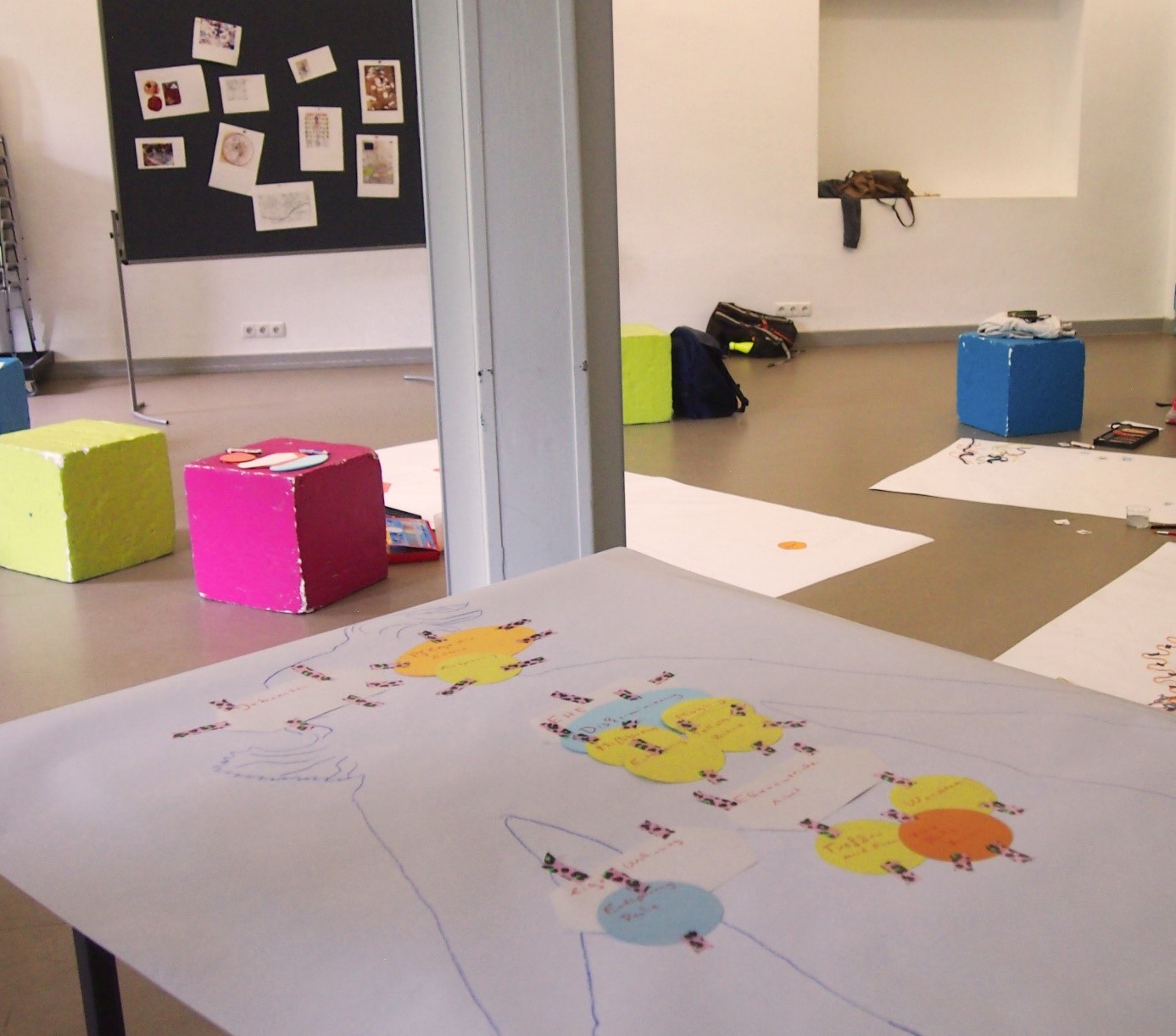
Image: Dr. Katharina Schmidt
Dr. Katharina Schmidt from the Critical Geographies of Global Inequalities working group in the Faculty of Mathematics, Informatics and Natural Sciences is researching homelessness, among other topics. A workshop took place in the summer of 2021 as part of the project Körper-Territorien obdach- und wohnungloser Frauen* to provide women* affected by homelessness with a space to share their experiences and to network. In this interview, Katharina Schmidt explains how the project came to be, what body-territory mapping is all about, and why research into homelessness among women* is so important.
Can you outline your project briefly?
The project links with research topics that are part of my doctoral dissertation on the geographies of homelessness. It looks at the actual physical experiences of urban homelessness, with a focus on the knowledge and emotional geographies of homeless women*. Under the title Creating Body-Maps Together, I conducted a workshop with homeless women*, in which we mapped so-called body-territories. In the spirit of “sharing is caring” and “the personal is political,” the workshop began by creating a collective knowledge of the body, and moving on to creating opportunities to network and discuss social and political challenges and structures for homeless women*.
How did the project come to be?
The project is in cooperation with the women’s network of the homeless persons’ self-representation council (Selbstvertretung wohnungsloser Menschen e.V.), with the intention of providing space for encounters and exchanges between and for homeless women*. That was important, because spaces for homeless women* which are not dominated by men, or bound by institutional (charitable, institutional, etc.) conditions, are rare outside of mainstream aid or political structures.
Why did you choose these research methods, that is, the mapping of body-territories, and what exactly does it mean?
The mapping of body-territories is founded in the Latin American debates around cuerpo-território, which are based on decolonial and indigenous feminist perspectives and practices. In these debates, the body is seen as a territory in itself, but also part of social, political, economic, historical, and natural processes. Body-territories can be mapped using large format drawings, collages, or sketches to trace and visually display the locations and relationships between emotional and physical spaces. I chose this approach to display and better investigate precisely this interplay between the bodies of homeless women* and their relationship with the urban context in Germany.
Why is the subject of homeless women*, and research into them, so important?
The daily needs and experiences of homeless women* have been and still are overlooked in research and in practice. This is due, among other things, to a broad and culturally rooted stigma against the homeless. Discrimination in urban spaces, in public and private institutions, in relationships or in political representation leaves its marks both on and within the bodies of homeless women*. These are not just individual, but structural. In Germany, we lack fundamental research into the question of homelessness, particularly from an intersectional perspective. I am hoping that my work can contribute to ameliorating this.
The workshop is funded by the Women’s Advancement Fund from the Equal Opportunity Unit. More information on Dr. Katharina Schmidt’s research.
SEX.SEX.SEX. Kulturwissenschaftliche Höhepunkte und Abgründe—33rd student conference of the Deutsche Gesellschaft für Empirische Kulturwissenschaft (German association of empirical cultural studies)
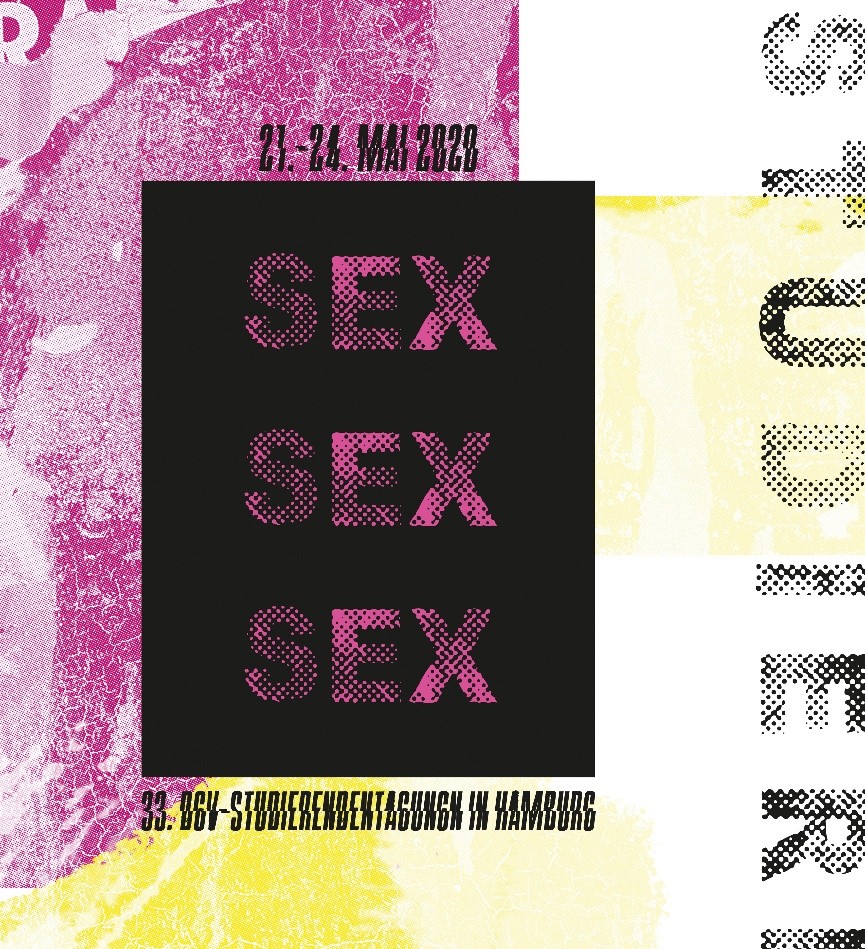 Picture: https://666studitagung2020.wordpress.com/poster/
Picture: https://666studitagung2020.wordpress.com/poster/
The 33rd student conference of the Deutsche Gesellschaft für Empirsche Kulturwissenschaft took place at Universität Hamburg from 13 to 16 May 2021. The conference focused on different ways of thinking about sex, gender, the body, and sexuality under the motto Sex. Sex. Sex.
The Deutsche Gesellschaft für Empirische Kulturwissenschaft (formerly the Deutsche Gesellschaft für Volkskunde) hosts an annual student conference on various topics at different universities. In 2020, the conference was scheduled to take place at the Institute for Anthropological Studies in Culture and History and Universität Hamburg. Due to the pandemic, the 33rd student conference (titled “Sex. Sex. Sex.”) took place digitally.
The organizers—bachelor’s and master’s students at the Institute for Anthropological Studies in Culture and History and the departmental student representative committee for empirical cultural studies—designed the conference around cultural study perspectives on sexualities, sex and gender, queer cultures, and the body. Seven interdisciplinary panels with individual talks by students, workshops, and performances provided insight into current and completed research projects on both historical and contemporary topics. Conference participants also discussed the further development of methods and cultural study approaches to learn how to understand different cultures and how their insights could lead to societal change.
How did it all begin? When the organizational team realized that the student conference last focused on sex and gender 25 years ago, they quickly agreed that, this year, it should focus on the topic again so as to reflect on the issues of negotiation, materiality, physicality, and inequality. The conference’s core areas focused on the interweaving of sex and gender with identity, morality and ethics, pathology and health, labor, institutions and politics, and technology and aesthetics. Furthermore, the conference topics were designed to emphasize interdisciplinary perspectives, link theoretical and empirical findings, and consider changes and cultural transformation.
“It was important to the organizational team to enable students at all levels to present their term papers and theses. In addition to making fields of research and lines of inquiry visible, another goal of the conference was to sensitize us to the complexity of daily life and to discover which intersectional, decolonial, and historicizing approaches we need to understand it,” said Manuel Bolz, a master’s student in empirical cultural studies and part of the 10-person organizational team. See the conference programme (German only) for more insights into the conference topics.
The 450-plus registrations reveal the conference’s relevance and appeal. In lively discussions, speakers and participants focused on the poles of emotionalizing and moralizing discourses related to sexuality in everyday life while using the methods, theories, and knowledge of cultural studies to approach them.
To make conference findings accessible to the larger public, the organizational team and students from other universities are planning a conference catalog for the 33rd student conference, scheduled for publication in the Hamburger Journal für Kulturanthropologie in the late summer of 2022. There, the authors will present their exploratory questions and the completed theses on the topics of gender, the body, and sexuality, which also formed some of the panel content. The catalog is being funded by the Women’s Advancement Fund of Universität Hamburg.
See the 33rd student conference home page (German only) for more information.
